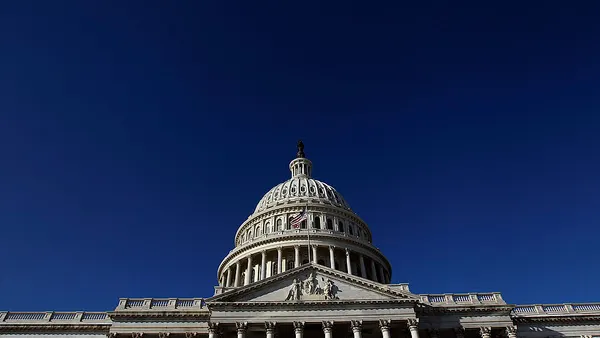Dive Brief:
- The Department of Health and Human Services has rejected calls from Democratic lawmakers to allow women to qualify for a special open enrollment period under the Affordable Care Act if they become pregnant. Supporters said the change would address a coverage gap that can leave women without maternity care.
- A response from HHS Secretary Sylvia Mathews Burwell claims the agency doesn't have "the legal authority to establish pregnancy as an exceptional circumstance" to qualify for a special enrollment period. She noted that qualifying pregnant women can alternatively enroll in Medicaid and the Children's Health Insurance Program.
- Critics argue there is no legal reason why the administration would not be able to designate pregnancy as one of the many qualifying life events for special enrollment, and note that maternal mortality rates are reported to be three to four times higher for women without maternity care.
Dive Insight:
Burwell told NPR in February that HHS was following the lead of insurance companies in excluding pregnancy as a qualifying life event, but said at the time that HHS was open to considering it.
While maternity coverage could improve outcomes for women and children, the health insurance industry has argued that allowing women to enroll when they become pregnant would create an incentive for them to wait to purchase coverage or change to a more comprehensive plan.
"If you only create incentives for people to enroll when they have a health need, it poses a tremendous risk to the risk pool and affordability for everyone else," Clare Krusing, spokeswoman for America's Health Insurance Plans, told NPR. Such a move could impact insurers' ability to predict enrollment and set prices.
"It is absolutely critical that all pregnant women have access to health care coverage, so I am disappointed by today's announcement," said Senate Health, Education, Labor and Pensions Committee ranking member Sen. Patty Murray in a prepared statement. "I will continue looking for ways to get this done so that more women can get covered and get the affordable, high quality care they need for themselves and their young children."













